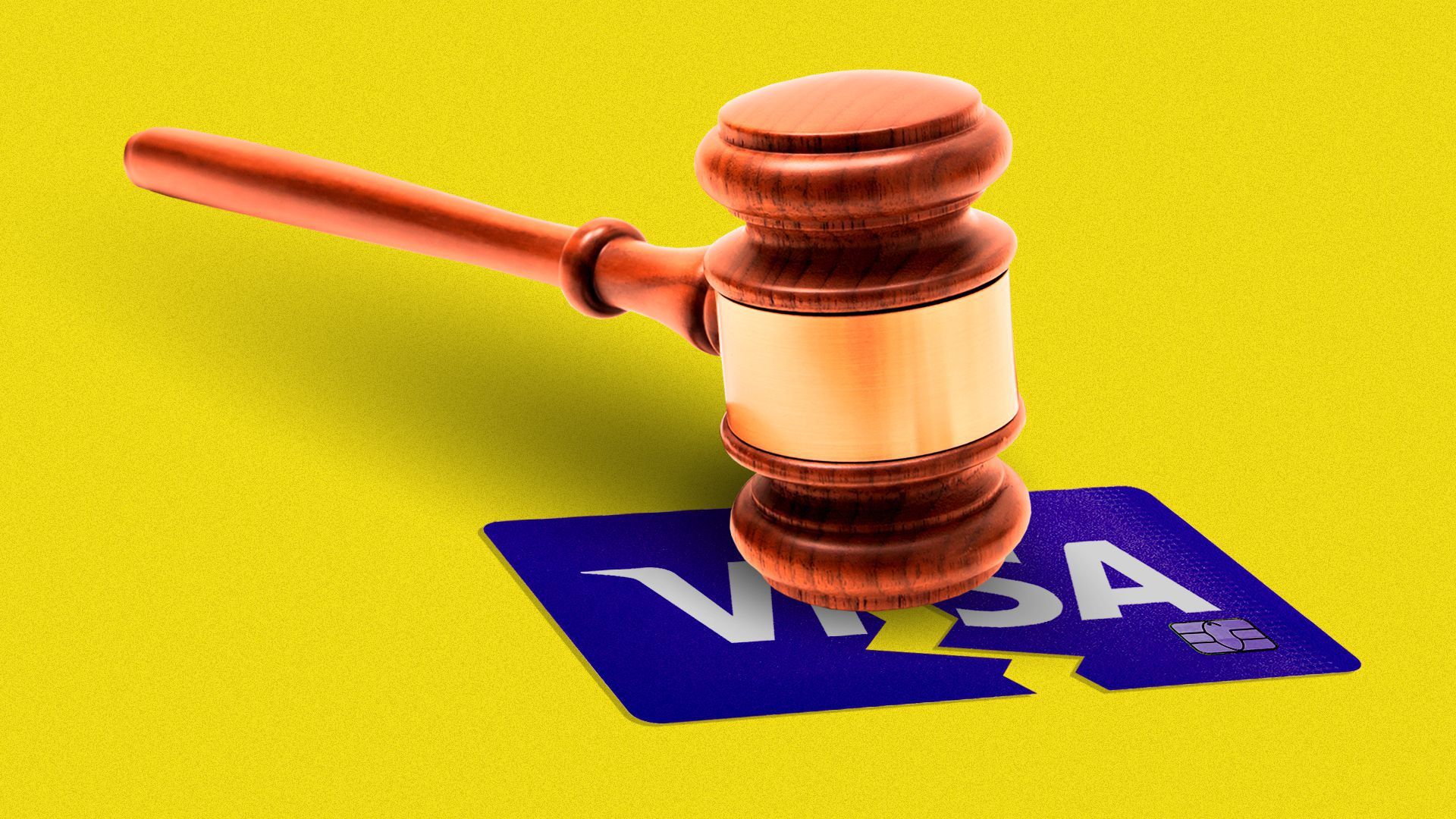Justice Department takes on a monopolist
Add Axios as your preferred source to
see more of our stories on Google.

Illustration: Annelise Capossela/Axios
The Department of Justice antitrust lawsuit against Visa is important, not just for the outcome of a $5 billion fintech acquisition, but for the whole future of the industry.
Why it matters: While there are a lot of financial startups, very few of them are genuinely disruptive. In fact, many of them implicitly rely upon the Visa and Mastercard duopoly. The DOJ wants to ensure that there's still a chance that duopoly could face real competition.
How it works: Visa has a monopoly on debit purchases, and especially online debit purchases, where it has 70% of the market and earns $2 billion per year.
- Plaid is one of the few companies in a position to develop a rival product — one where consumers could pay for purchases directly out of their bank account, much as they do when they use Venmo.
- Visa decided to buy Plaid as an "insurance policy to protect our debit biz in the U.S.," in the words of Visa's CEO. That's pretty clearly anticompetitive behavior.
The big picture: It's not just Visa that relies on revenue from debit-card purchases; it's also all the neobanks, such as Chime, Varo, Aspiration, and N26.
- Chime's CEO, Chris Britt, likes to tell people that he's not a bank, he's a payments company.
- That means he's fully invested alongside Visa in having access to a continued stream of payments on Visa's rails, where Chime gets a cut of every transaction in a way that might not be the case with a rival product.
The bottom line: Payments tend by their nature to be monopolies. If there's hope for a competitor to Visa, it's good that the DOJ is keeping that hope alive. Even if that threatens the main income stream for other fintechs.
